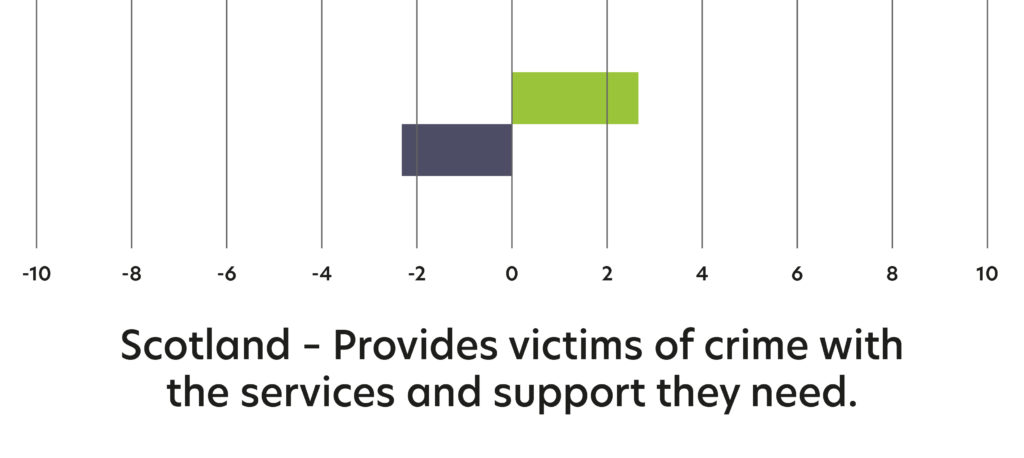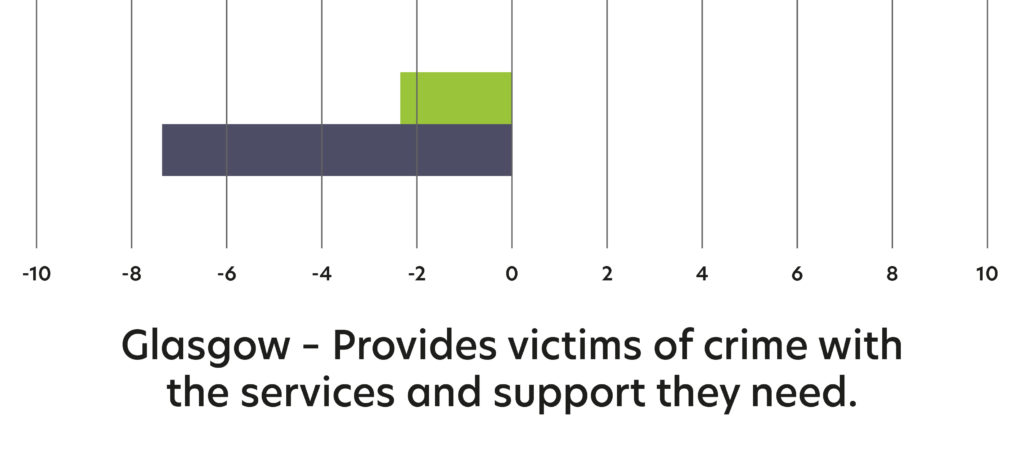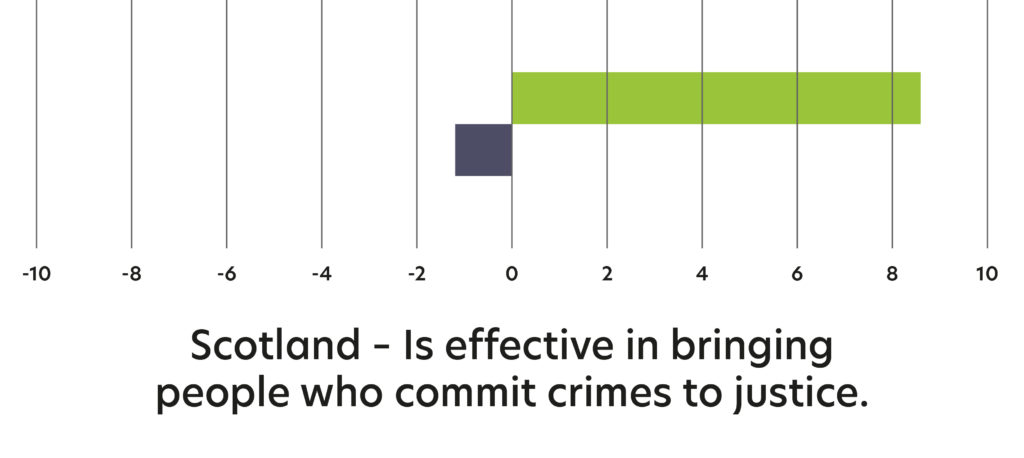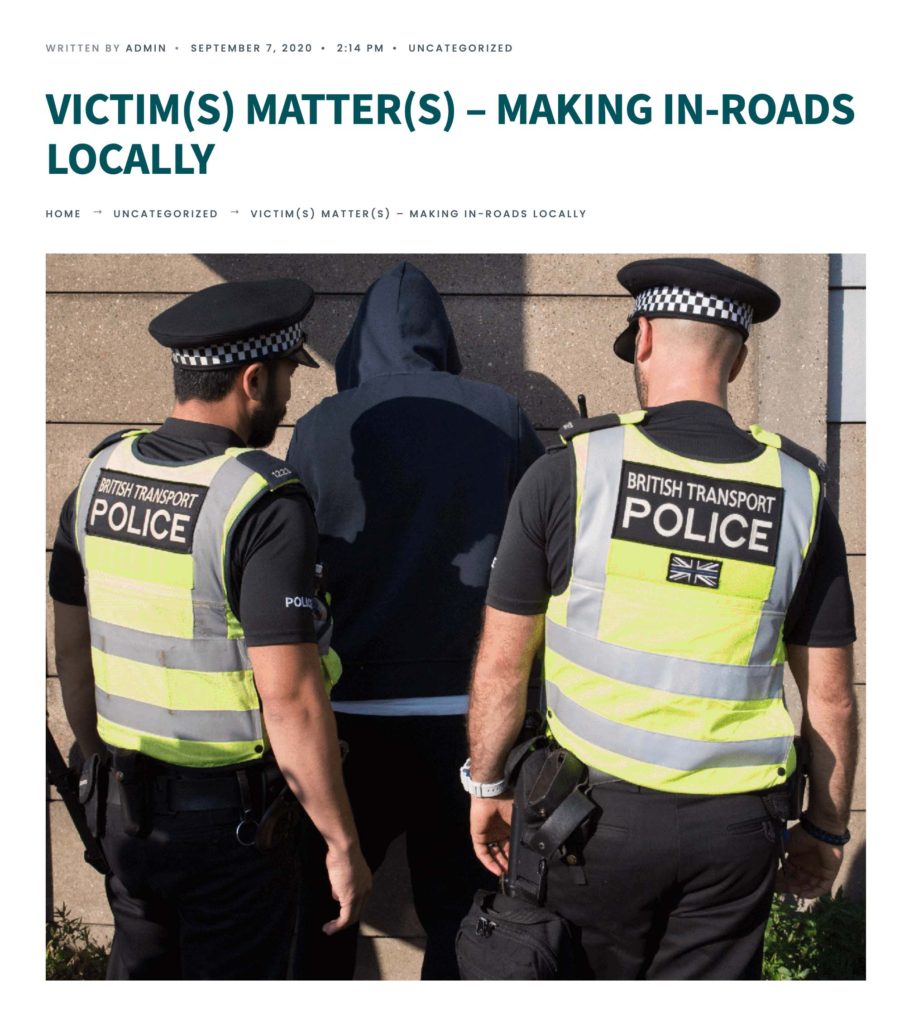Policy, Planning & Development Officer, Community Justice
Victims – we will listen to and act on victim’s voices and ensure that victims of crime receive the support they need.
In the 2019-20 Annual Reporter, in an article ‘Victim(s) Matter(s) – Making In-Roads Locally’ I explained that listening to and acting on the voices of victims and witnesses was a priority for the Community Justice Glasgow Partnership. As explained, many of the levers for a better experience of the Justice System for victims and witnesses of crime, sit outwith the Gift of the Partnership locally, instead they sit at a national level within a legislative framework. I also explained, in that article, that the work we do locally to meet that priority, focusses on using the right justice response to reduce reoffending and protect the public:
“There is no easy answer, at a very pragmatic level, for every person who turns their life around and gets off the revolving door of short-term prison sentences, going forward, there will be less offending, less harm to communities and ultimately fewer victims of crime. For lower level offending, where a short-term prison sentence could be imposed, the evidence tells us that community options are significantly more effective in reducing the risk of further offending.”
And on focussing our action around engagement with Victims & Witnesses:
“…..increasing knowledge and understanding of the Justice System, giving victims of crime an empowered voice to shape and influence the work that we do, and take action to deliver against the outcomes set out in our Community Justice Outcomes Improvement Plan 2018-2023 and Outcome Improvement Framework”.
FOR BACKGROUND YOU CAN STILL ACCESS THE ARTICLE BY CLICKING BELOW:
Although this piece of work had its beginnings in Prevention, the work cuts across a number of Community Justice Glasgow Priority Themes:
- Victims – we will listen to act on victim’s voices and ensure that victims of crime receive the support they need.
- Prevention – we will continue with the development of earlier intervention and prevention within the justice system, capitalising on opportunities at the first point of contact with Community Justice Partners.
- Service and Resource Alignment – we will use resources where they are most effective, and in a collaborative approach to improve outcomes.
- Engagement/Communication – we will establish an effective approach to communication, with a focus on continuing communication between partners, the wider group of stakeholders and communities. Improved communication will stimulate dialogue, enhance knowledge and further develop confidence in justice systems for the public and for key stakeholders, such as the judiciary.
It is a combination of the first and last of these – Engagement with Victims – that the remainder of this article will focus on, in particular, consultation work with victims & witnesses of crime in order to inform improvement planning around increasing referrals to Diversion from Prosecution for Adults.
As part of this Improvement Plan work, in collaboration with Victim Support Glasgow, the following action was taken:
- A Diversion from Prosecution Briefing for Victims & Witnesses of crime was developed and widely circulated through Victim Support networks and via Glasgow City Council Social Media platforms. The briefing remains housed on the Community Justice Glasgow webpage in the Other Useful Resources Section for wider use.
- A Consultation Questionnaire was developed collaboratively between Victims Support Glasgow’s Locality Manager and Service User Engagement Office and Community Justice Glasgow.
- The questionnaire, alongside the briefing for background, was widely circulated and publicised through Victim Support Glasgow, Glasgow City Council Social Media networks and Community Justice Glasgow networks.
- A Victim Support Service User Panel was developed and utilised for feedback and change at each stage of the process of the development of both the briefing and the questionnaire. That Panel is now in place and can be tapped into for future work.
- 28 responses were received.
What we asked, and a summary of the responses can be accessed HERE. Broadly speaking, analysis of the responses showed that the briefing – which put Diversion from prosecution in the context of reducing re-offending – improved the knowledge and understanding of Diversion from Prosecution Process – with 80% of those who identified as a victim or witness and 75% of all respondents agreeing that:
The briefing on DfP provided gave me a better understanding of the Diversion from Prosecution (DfP) process.
73% of those who identified as a victim or witness agreed that they would be supportive of DfP or other community sentencing options being used instead of sending people to prison for lower tariff crimes. Comparatively 40% agreed that they would prefer people who committed lower tariff crimes were always punished with a community sentence or prison – Diversion from Prosecution is an intervention aimed at keeping people out of the more formal parts of the Justice System such as Community or Custodial Sentences.
93.5% of those who identified as a victim or witness in the survey and 92.3% of those who did not agreed that they would prefer people who committed lower tariff crime were given the opportunity to rehabilitate, with 80% agreeing that, when it comes to criminal justice processes, people not committing further crimes is the most important aspect.
Next Steps – At the start of the journey for this piece of work, there was an ambition to have focus groups as well as the questionnaire to unpick some of the feedback and explore this further with the Service User Panel and potentially other victims and witnesses of crime who expressed an interest. Unfortunately, due to the Covid19 Pandemic restrictions, this was not possible. Going forward there is still scope for workshops with the Service User Panel to unpick this alongside other areas of Community Justice developments that are potentially at and earlier stages and raise the level of engagement beyond consultation.
There is always a risk that there will be a perceived or real conflict between the development of justice intervention that divert people away from the more formal parts of the justice system and those who have had crimes committed against them. By working collaboratively to help victims and witnesses better understand the rationale behind different interventions and seeking their views, that result in change and feeling heard, we can mitigate some of the negativity that may come from this. Our own Community Justice Glasgow strategy for Purposeful Engagement, a plan linked to performance provides the foundation to ensure that all engagement activities will continue to meet the needs and priorities of service users, communities of interest and the wider communities.
Seeking, hearing and implementing the voices of any stakeholder in the justice system, will support continuous improvement and sustainable collaborative practice to ensure better outcomes and equality of opportunity for those impacted.
The information collected within the survey will guide how we work to improve outcomes for all of those impacted by the justice system either as someone with lived experience as a perpetrator or as a victim or witness.
And finally a look at the figures. In last year’s article, I reported on an increase in the overall Crime Victimisation Rate in Glasgow, I am pleased to say that for 2018-20 (the last reporting period available) there was a decrease of 2.2%, this represents an overall decrease of 5.6% since we began reporting on this in 2008-2009 (see Figure 1 Below).
Figure 1
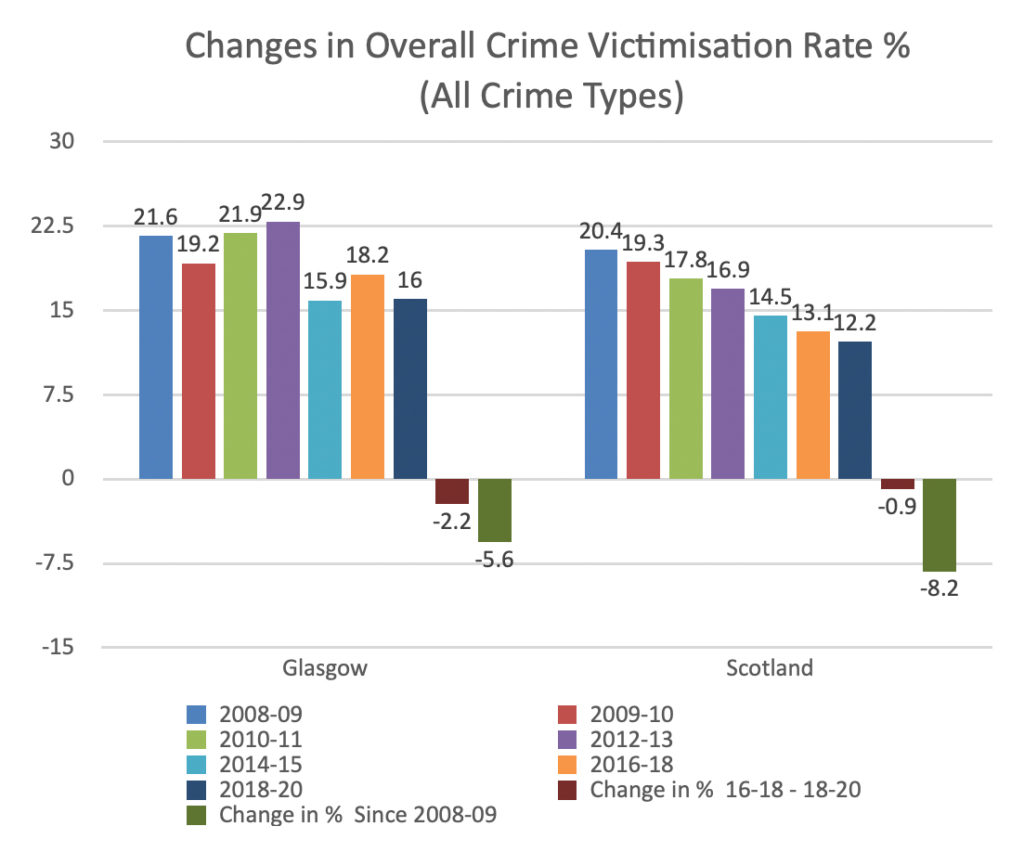
Unfortunately in the latest recording period (2018 – 2020) people’s perception/confidence have not correlated with the actual crime victimisation rates (see Figure 2 below) with confidence falling in each of the reporting categories for Greater Glasgow Police Division, demonstrating the need for clear engagement and communication with Victims of Crime and communities.
Figure 2

